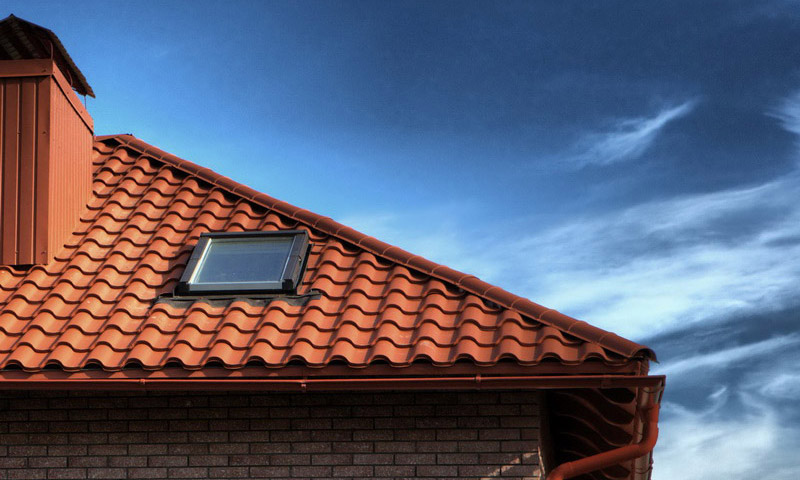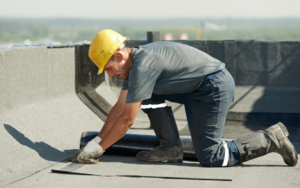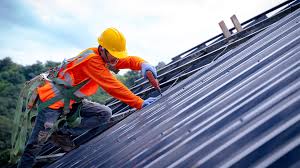When it comes to safeguarding a commercial building from the devastating effects of tornadoes, the roof is the first line of defense. Tornadoes are powerful natural phenomena with winds that can exceed 200 miles per hour, capable of causing immense damage to structures. For business owners, ensuring that their commercial roof is as resistant as possible to such extreme weather is paramount. But what kind of roof offers the best resistance to tornado damage?
Metal Roofing
One of the most tornado-resistant roofing materials available is metal. Metal roofs, especially those made from steel or aluminum, are renowned for their durability and strength. They can withstand high winds and flying debris, which are common during tornadoes. The interlocking panels of a metal roof create a tight seal, making it less likely to be lifted or damaged by strong winds.
Additionally, metal roofs are typically coated with a protective layer that helps prevent rust and corrosion, further enhancing their longevity and resistance to extreme weather conditions. Proper installation by a Certified Installer is crucial, as poorly installed metal roofs can still be vulnerable to uplift and other forms of damage.
Impact-Resistant Shingles
Another option for tornado-resistant roofing is impact-resistant shingles. These shingles are specifically designed to withstand the impact of flying debris, which is a significant threat during a tornado. Made from materials like asphalt, rubber, or polymer, impact-resistant shingles are engineered to absorb and dissipate the energy from impacts, reducing the likelihood of cracking or breaking.
According to the Underwriters Laboratories (UL) 2218 Standard, these shingles often have a Class 4 rating, the highest rating for impact resistance. This rating indicates that the shingles can withstand the impact of a 2-inch steel ball dropped from 20 feet without cracking.
Concrete Tiles
Concrete tiles are another robust option for tornado-resistant roofing. Known for their strength and durability, concrete tiles can endure high winds and debris impact. Their heavyweight nature makes them less susceptible to being lifted by strong winds compared to lighter materials. Concrete tiles also offer excellent fire resistance and longevity, often lasting 50 years or more with proper maintenance.
However, it’s important to note that concrete tiles’ weight requires a strong underlying structure to support them. Ensuring that the roof deck and supporting structures are adequately reinforced is essential when opting for concrete tiles.
Reinforced Roofing Systems
Investing in reinforced roofing systems can provide a layer of protection for commercial buildings in tornado-prone areas. These systems typically involve additional measures such as hurricane straps, reinforced trusses, and enhanced anchoring systems that help secure the roof more effectively to the building’s structure.
One such system uses a fully adhered roofing membrane bonded directly to the roof deck. This reduces the likelihood of wind uplift and helps keep the roofing materials in place during extreme weather. Additionally, reinforced roofing systems often include multiple layers of protection, such as waterproof membranes and additional insulation, which can help prevent water intrusion and enhance the overall durability of the roof.
Importance of Professional Installation and Maintenance
Regardless of the roofing material chosen, professional installation and regular maintenance are crucial to ensuring the roof’s resistance to tornado damage. Improper installation can leave the roof vulnerable to wind uplift and other forms of damage, even if the materials themselves are highly durable.
Regular inspections and maintenance are equally important. Over time, wear and tear can compromise the integrity of the roofing system. Identifying and addressing minor issues before they escalate can prevent significant damage during a tornado. This includes checking for loose or damaged shingles, ensuring that metal panels are securely fastened, and verifying that any reinforcement measures remain intact.
Choosing the most tornado-resistant roof for a commercial building involves considering various factors, including the type of roofing material, the quality of installation, and ongoing maintenance. Metal roofs, impact-resistant shingles, concrete tiles, membranes and reinforced roofing systems all offer excellent resistance to the extreme conditions associated with tornadoes. However, the best protection comes from a combination of durable materials, professional installation, and diligent maintenance. By investing in a tornado-resistant roofing system, business owners can better protect their properties, minimize potential damage, and ensure the safety of their buildings during severe weather events.








